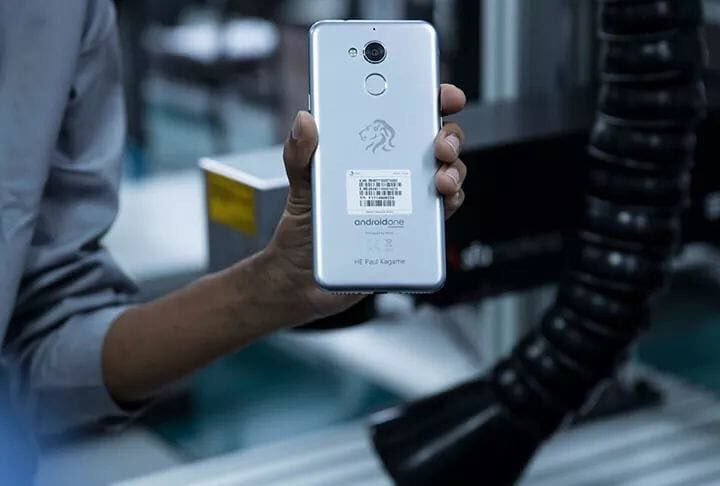Rwanda’s President, Paul Kagame on Monday officially launched two new smartphones manufactured in Africa.
The new phones are the first “Made in Africa” models produced by a Rwandan based company called Mara Group.
Mara X and Mara Z are now available for purchase to consumers. They were showcased in May this year at a Tech summit in Paris.
Now on sale they will use Google’s Android operating system and cost $190 (Mara X) and $130 (Mara Z).
President Kagame said he hoped the new phones would increase Rwanda’s smartphone usage, currently at around 15%.
VIDEO:
President #Kagame:
Around 1000 individual components are involved, The Mara Phones plant is therefore a complex manufacturing operation. #RBANews pic.twitter.com/k8Wyy1BuYL
— Rwanda Broadcasting Agency (RBA) (@rbarwanda) October 7, 2019
“Rwandans are already using smartphones but we want to enable many more. The introduction of Mara phones will put smartphones ownership within reach of more Rwandans,” Kagame said.
PHOTO: “Our world is changing fast. Keeping pace requires constant innovation. This is the path Rwanda has chosen for our development.“ President Kagame remarks at the official launch of Mara Phones manufacturing plant. To view more photos https://t.co/X7dH2DNeJd #MadeinRwanda pic.twitter.com/IpbRohc5ZW
— Presidency | Rwanda (@UrugwiroVillage) October 7, 2019
Made in Rwanda
A new smartphone factory for the production of the Maraphones was officially opened in April.
The plant had cost $24 million and could make 1,200 phones per day, according to the company.
The Mara Phones are among the first devices to run Android Oreo, according to company officials.
Android Oreo is an OS optimized for apps like YouTube Go, Facebook Lite and Twitter Lite that are made for the African market.

Mara Group CEO Ashish Thakkar has said his company is targetting customers willing to pay more for quality.
He told Reuters that “This is the first smartphone manufacturer in Africa.”
“We are actually the first who are doing manufacturing. We are making the motherboards, we are making the sub-boards during the entire process. “There are over 1,000 pieces per phone.”
VIDEO:
”When we started we believed in what president #Kagame said they are enough people writing our stories we need to write our own stories”
-Mara Phone CEO Ashish Thakkar pic.twitter.com/oug5hDarmX
— Rwanda Broadcasting Agency (RBA) (@rbarwanda) October 7, 2019
There are assemble plants for smartphone companies in Egypt, Ethiopia, Algeria, and South Africa, but they import the components.
Source: Africafeeds.com


